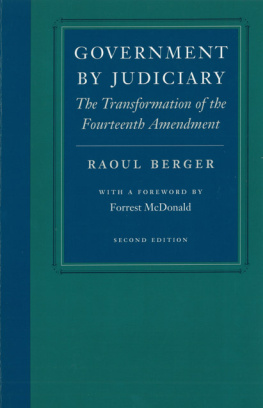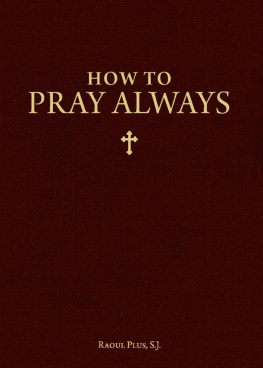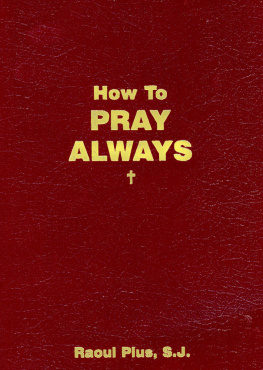Raoul Vaneigem - The Revolution of Everyday Life
Here you can read online Raoul Vaneigem - The Revolution of Everyday Life full text of the book (entire story) in english for free. Download pdf and epub, get meaning, cover and reviews about this ebook. genre: Science. Description of the work, (preface) as well as reviews are available. Best literature library LitArk.com created for fans of good reading and offers a wide selection of genres:
Romance novel
Science fiction
Adventure
Detective
Science
History
Home and family
Prose
Art
Politics
Computer
Non-fiction
Religion
Business
Children
Humor
Choose a favorite category and find really read worthwhile books. Enjoy immersion in the world of imagination, feel the emotions of the characters or learn something new for yourself, make an fascinating discovery.

- Book:The Revolution of Everyday Life
- Author:
- Genre:
- Rating:5 / 5
- Favourites:Add to favourites
- Your mark:
- 100
- 1
- 2
- 3
- 4
- 5
The Revolution of Everyday Life: summary, description and annotation
We offer to read an annotation, description, summary or preface (depends on what the author of the book "The Revolution of Everyday Life" wrote himself). If you haven't found the necessary information about the book — write in the comments, we will try to find it.
The Revolution of Everyday Life — read online for free the complete book (whole text) full work
Below is the text of the book, divided by pages. System saving the place of the last page read, allows you to conveniently read the book "The Revolution of Everyday Life" online for free, without having to search again every time where you left off. Put a bookmark, and you can go to the page where you finished reading at any time.
Font size:
Interval:
Bookmark:

Retrieved on May 14, 2009 from http://library.nothingness.org/articles/all/all/pub_contents/5
The Anarchist Library
To Ella, Maldoror and those who helped this adventure upon its way. I LIVE ON THE EDGE OF THE UNIVERSE AND I DON'T NEED TO FEEL SECURE.
Man walketh in a vain shew, he shews to be a man, and that's all.
We seem to live in the State of variety, wherein we are not truly living but only in appearance: in Unity is our life: in one we are, from one divided, we are no longer.
While we perambulate variety, we walk but as so many Ghosts or Shadows in it, that it self being but the Umbrage of the Unity.
The world travels perpetually, and every one is swollen full big with particularity of interest; thus travelling together in pain, and groaning under enmity: labouring to bring forth some one thing, some another, and all bring forth nothing but wind and confusion.
Consider, is there not in the best of you a body of death? Is not the root of rebellion planted in your natures? Is there not also a time for this wicked one to be revealed?
You little think, and less know, how soon the cup of fury may be put into your hands: my self, with many others, have been made stark drunk with that wine of wrath, the dregs whereof (for ought I know) may fall to your share suddenly.
From: Heights in Depths and Depths in Heights (or TRVTH no less secretly than sweetly sparkling out its Glory from under a cloud of Obloquie) by the Ranter Jo. Salmon (1651).
I have no intention of revealing what there is of my life in this book to readers who are not prepared to relive it. I await the day when it will lose and find itself in a general movement of ideas, just as I like to think that the present conditions will be erased from the memories of men.
The world must be remade; all the specialists in reconditioning will not be able to stop it. Since I do not want to understand them, I prefer that they should not understand me.
As for the others, I ask for their goodwill with a humility they will not fail to perceive. I should have liked a book like this to be accessible to those minds least addled by intellectual jargon; I hope I have not failed absolutely. One day a few formulae will emerge from this chaos and fire point-blank on our enemies. Till then these sentences, read and re-read, will have to do their slow work. The path toward simplicity is the most complex of all, and here in particular it seemed best not to tear away from the commonplace the tangle of roots which enable us to transplant it into another region, where we can cultivate it to our own profit.
I have never pretended to reveal anything new or to launch novelties onto the culture market. A minute correction of the essential is more important than a hundred new accessories. All that is new is the direction of the current which carries commonplaces along.
For as long as there have been men and men who read Lautramont everything has been said and few people have gained anything from it. Because our ideas are in themselves commonplace, they can only be of value to people who are not.
The modern world must learn what it already knows, become what it already is, by means of a great work of exorcism, by conscious practice. One can escape from the commonplace only by manhandling it, mastering it, steeping it in dreams, giving it over to the sovereign pleasure of subjectivity. Above all I have emphasized subjective will, but nobody should criticize this until they have examined the extent to which the objective conditions of the contemporary world are furthering the cause of subjectivity day by day. Everything starts from subjectivity, and nothing stops there. Today less than ever.
From now on the struggle between subjectivity and what degrades it will extend the scope of the old class struggle. It revitalizes it and makes it more bitter. The desire to live is a political decision. We do not want a world in which the guarantee that we will not die of starvation is bought by accepting the risk of dying of boredom.
The man of survival is man ground up by the machinery of hierarchical power, caught in a mass of interferences, a tangle of oppressive techniques whose rationalization only awaits the patient programming of programmed minds.
The man of survival is also self-united man, the man of total refusal. Not a single instant goes by without each of us living contradictorily, and on every level of reality, the conflict between oppression and freedom, and without this conflict being strangely deformed, and grasped at the same time in two antagonistic perspectives: the perspective of power and the perspective of supersession. The two parts of this book, devoted to the analysis of these two perspectives, should thus be approached, not in succession, as their arrangement demands, but simultaneously, since the description of the negative founds the positive project and the positive project confirms negativity. The best arrangement of a book is none at all, so that the reader can discover his own.
Where the writing fails it reflects the failure of the reader as a reader, and even more as a man. If the element of boredom it cost me to write it comes through when you read it, this will only be one more argument demonstrating our failure to live. For the rest, the gravity of the times must excuse the gravity of my tone. Levity always falls short of the written words or overshoots them. The irony in this case will consist in never forgetting that.
This book is part of a current of agitation of which the world has not heard the last. It sets forth a simple contribution, among others, to the recreation of the international revolutionary movement. Its importance had better not escape anybody, for nobody, in time, will be able to escape its conclusions.
My subjectivity and the Creator : This is too much for one brain.
Lautramont
Because of its increasing triviality, everyday life has gradually become our central preoccupation (1). No illusion, sacred or deconsecrated (2), collective or individual, can hide the poverty of our daily actions any longer (3). The enrichment of life calls inexorably for the analysis of the new forms taken by poverty, and the perfection of the old weapons of refusal (4).
The history of our times calls to mind those Walt Disney characters who rush madly over the edge of a cliff without seeing it, so that the power of their imagination keeps them suspended in mid-air; but as soon as they look down and see where they are, they fall.
Contemporary thought, like Bosustov's heroes, can no longer rest on its own delusions. What used to hold it up, today brings it down. It rushes full tilt in front of the reality that will crush it: the reality that is lived every day.
* * *
Is this dawning lucidity essentially new? I don't think so. Everyday life always produces the demand for a brighter light, if only because of the need which everyone feels to walk in step with the march of history. But there are more truths in twenty-four hours of a man's life than in all the philosophies. Even a philosopher cannot ignore it, for all his self-contempt; and he learns this self-contempt from his consolation, philosophy. After somersaulting onto his own shoulders to shout his message to the world from a greater height, the philosopher finishes by seeing the world inside out; and everything in it goes askew, upside down, to persuade him that he is standing upright. But he cannot escape his own delirium; and refusing to admit it simply makes it more uncomfortable.
Font size:
Interval:
Bookmark:
Similar books «The Revolution of Everyday Life»
Look at similar books to The Revolution of Everyday Life. We have selected literature similar in name and meaning in the hope of providing readers with more options to find new, interesting, not yet read works.
Discussion, reviews of the book The Revolution of Everyday Life and just readers' own opinions. Leave your comments, write what you think about the work, its meaning or the main characters. Specify what exactly you liked and what you didn't like, and why you think so.








![Nicholson-Smith Donald - The revolution of everyday life: a new translation by Donald Nicholson-Smith with a [new] preface by the author](/uploads/posts/book/223344/thumbs/nicholson-smith-donald-the-revolution-of-everyday.jpg)

